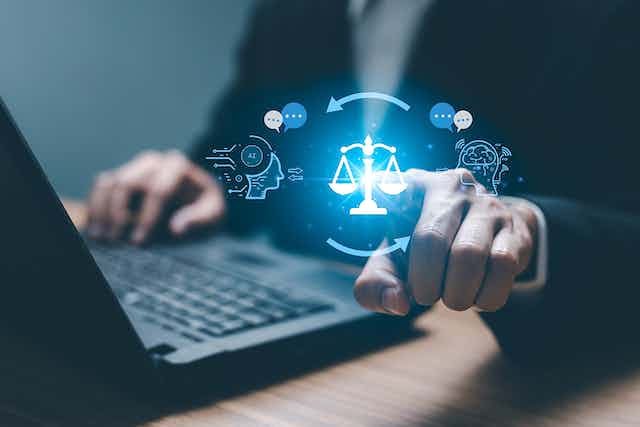In the legal domain, where information is vast and often complex, artificial intelligence (AI) is reshaping the landscape of legal research. This article explores the transformative role of AI in legal research, highlighting how advanced technologies are enhancing efficiency, accuracy, and accessibility in the legal profession.

- Document Review and Analysis:
- Automated Document Review: AI-powered tools streamline the process of reviewing and analyzing legal documents. Natural Language Processing (NLP) algorithms can quickly sift through extensive volumes of legal texts, contracts, and case law, significantly reducing the time and effort required for document review.
- Legal Citation Analysis: AI can analyze legal citations to identify and establish connections between cases, statutes, and legal opinions. This capability aids legal professionals in comprehensively understanding the legal landscape, ensuring accurate referencing and supporting more informed legal arguments.
- Legal Research Assistance:
- Legal Research Platforms: AI-driven legal research platforms offer sophisticated search capabilities, enabling legal professionals to access relevant case law, statutes, and legal commentary more efficiently. These platforms leverage machine learning to understand user preferences and provide tailored recommendations for legal research.
- Predictive Legal Analytics: AI tools can analyze historical legal data to predict case outcomes, judge decisions, and legal trends. This predictive analytics functionality assists legal professionals in anticipating potential legal developments and making more informed strategic decisions.
- Contract Review and Analysis:
- Contract Analysis Automation: AI simplifies the process of contract review by automating the analysis of contractual terms and conditions. Natural language processing allows AI to identify key clauses, potential risks, and inconsistencies within contracts, improving the accuracy and speed of contract review.
- Due Diligence Support: AI assists in due diligence processes by rapidly reviewing large volumes of contracts and extracting relevant information. This not only accelerates due diligence timelines but also enhances the comprehensiveness of the analysis.
- Legal Writing Assistance:
- AI-Powered Legal Writing Tools: Legal professionals can leverage AI-powered writing tools that assist in drafting legal documents, memos, and briefs. These tools offer suggestions for legal language, identify potential errors, and ensure adherence to established legal writing conventions.
- Precedent Analysis: AI can analyze legal precedents to identify relevant cases with similar fact patterns. This aids legal professionals in constructing more persuasive arguments by drawing on precedents that align with the specific circumstances of their cases.
- Enhanced Legal Search Engines:
- Semantic Search Capabilities: AI enhances legal search engines by incorporating semantic search capabilities. This allows for more context-aware searches, improving the relevance and precision of search results and facilitating more efficient information retrieval.
- Continuous Learning: AI systems continuously learn from user interactions and feedback, refining search algorithms over time. This adaptive learning ensures that legal search engines become increasingly tailored to the specific needs and preferences of legal professionals.
Conclusion:
Artificial intelligence is ushering in a new era in legal research, empowering legal professionals with tools that enhance efficiency, accuracy, and overall effectiveness. As the legal landscape continues to evolve, the strategic integration of AI in legal research is becoming essential for staying ahead of the curve and providing clients with the highest quality legal services. The synergy between legal expertise and AI capabilities is poised to redefine the way legal professionals approach research and analysis in the years to come.


Be the first to comment on "Revolutionizing Legal Research: The Impact of Artificial Intelligence"